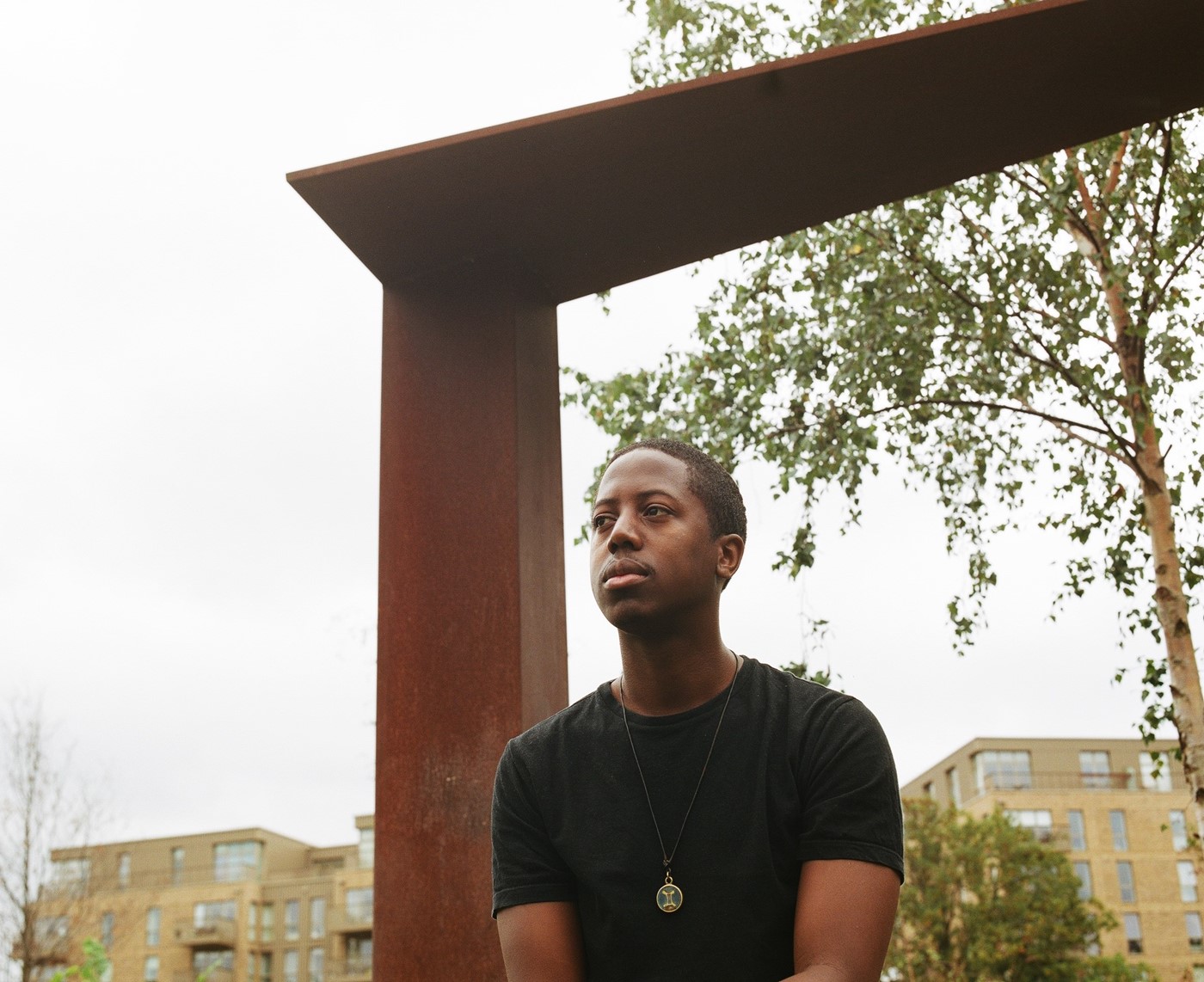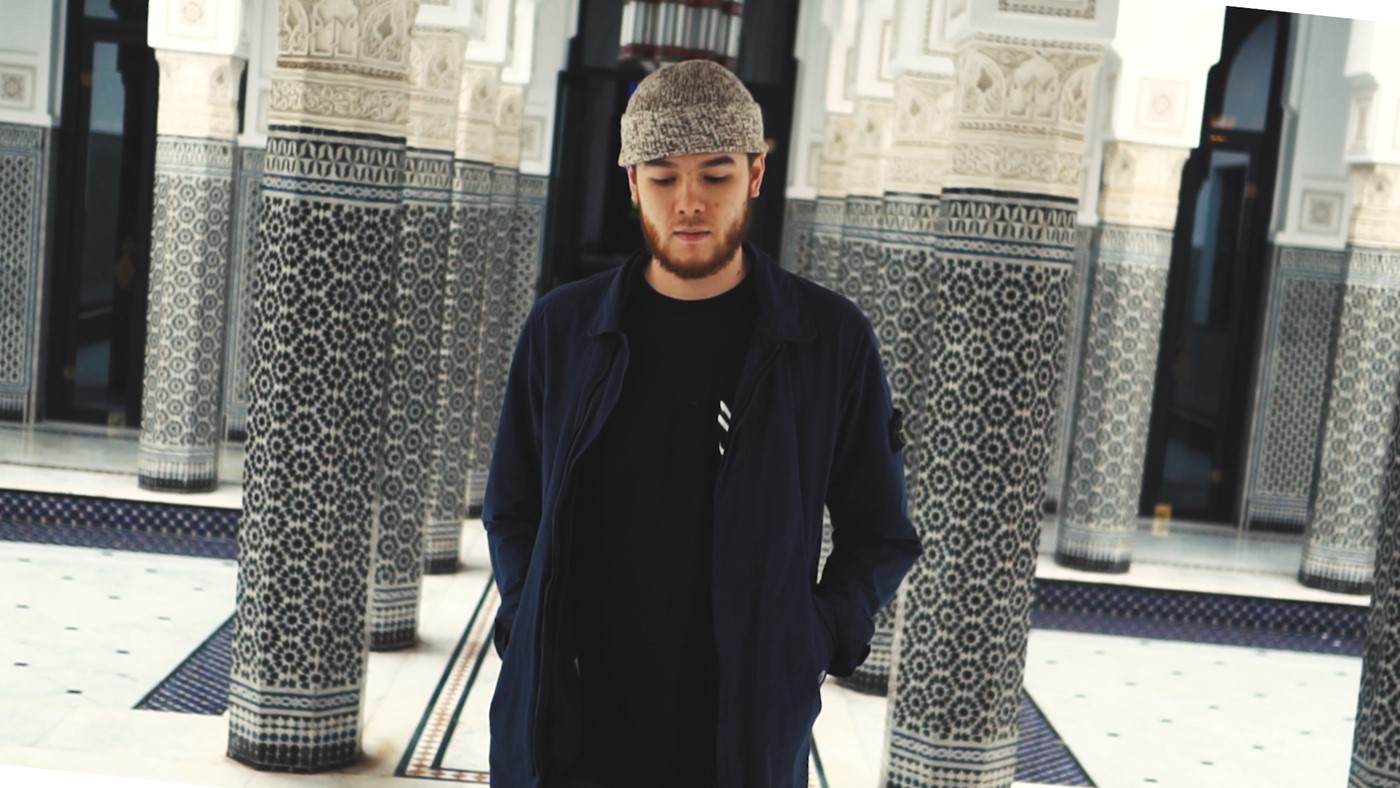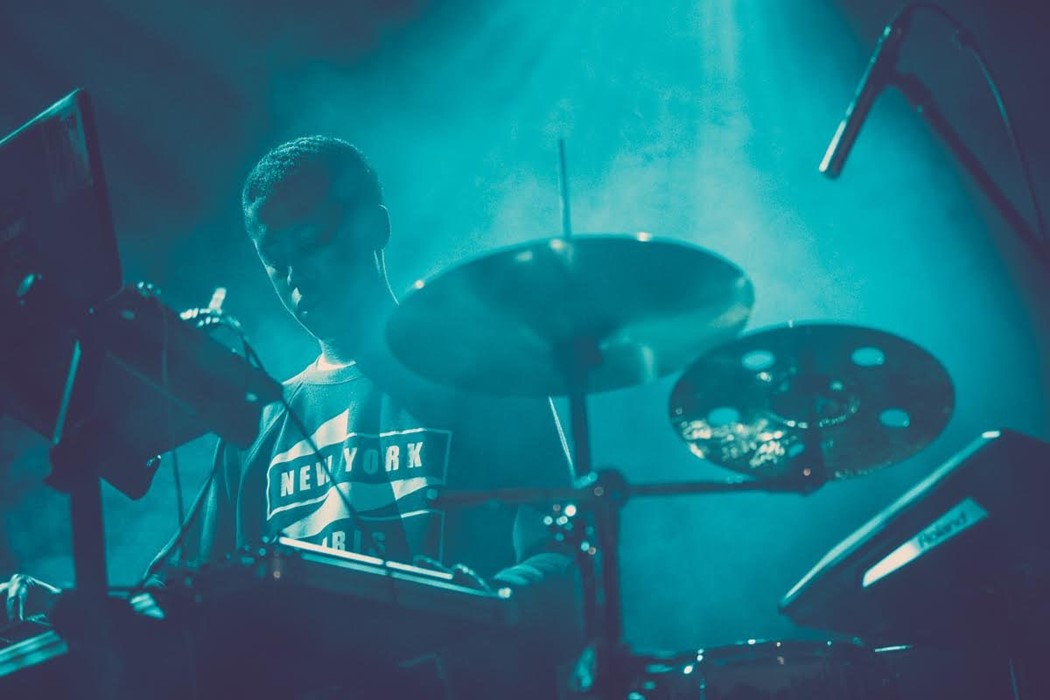How London’s New Jazz Scene is Opening up the Genre to a New Generation
- TextMike Vinti
A sonic revolution is sweeping the capital. Drawing on London’s rich rap culture and other genres long-ignored by traditionalists, young musicians are bringing jazz to a new audience – here, we meet those at the front of this exciting movement
South London is awash with the sound of horns: from the windows and doors of cafes, bars, venues and cars, syncopated drums, plucked double bass strings and rich piano chords ring out. It’s the sound of a new musical movement’s arrival, the sound of what’s fast becoming known as London Jazz.
Long the preserve of Ronnie Scott’s and the city’s other centrally post-coded clubs, jazz has not been a vital part of London’s musical landscape for some time. As the city burned through drum and bass, Albion indie, dubstep, Brit pop, grime and garage, the jazz world in London seemed almost non-existent, especially to the capital’s young people. In recent years, however, jazz has taken up a place alongside those genres as an essential part of the sound of London’s underground culture.
“We started 12 years ago, and back then jazz was a dirty word,” says Emily Moxon, Managing Director of Brownswood Recordings, the record company founded by acclaimed international DJ Gilles Peterson and one of a handful of indie labels at the core of London’s new jazz explosion. Earlier this year Moxon oversaw the release of We Out Here, a compilation record designed to bring much of the scene’s best talent together on record, compiled by Mercury Prize-nominated band leader Shabaka Hutchings. The record’s reception proved how far things had come since Brownswood began. “What used to scare people about jazz was that it was elitist and that you almost had to study it to understand what was going on,” Moxon continues, arguing that the influence of movements like grime, jungle and afrobeat has opened the genre up to a new generation of young Londoners.
The cast of London’s jazz scene is diverse, vast and young. The average player in the ‘new generation of jazz’ is in their twenties and the spectrum of sounds these artists produce reflects that. Whether it’s the afrobeats-inspired jams of KOKOROKO, the more club-ready ‘Wu Funk’ from producer and keys player Henry Wu, or the dreamy neo-soul of artists like Poppy Ajudha and Tom Misch, London’s new talents are transforming jazz by engaging with musical worlds that many traditionalists have ignored for a long time.

Moses Boyd is one of the scene’s leading talents, who, as a drummer, composer and band-leader, has witnessed the transformation of London jazz first-hand. “I’ve seen the audience change in front of me, what seems like overnight but I guess really over five years or so,” he says. Boyd has undeniably been an engine for that change. With both his solo project Exodus and his duo with saxophonist Binker Golding, Binker and Moses, he’s pushed the scene towards a more danceable sound and drawn on London’s rich rap culture. “The first Binker and Moses album was called Dem Ones,” he highlights “the two of us are on the front looking like a grime album, we tried to be as anti-jazz as possible.” The move paid off, with the album winning a MOBO and the duo finding themselves with a growing following of young fans in London.
Having been introduced to jazz by his drum teacher at school, Boyd found his feet in the scene first at a weekly jam at the Roundhouse in Camden and then at Tomorrow’ Warriors, a workshop run by legendary bassist Steve Crosby. At Tomorrow’s Warriors, Boyd found himself among a seemingly infinite number of aspiring musicians and soon began writing and collaborating with all of them. Overseen by Crosby, the teenage warriors would learn and perform jazz standards as well as their own original compositions, with Boyd and others often joining the older artists signed to Crosby’s record label on tour.
While at Tomorrow’s Warriors, Boyd wrote what’s considered by fans and artists alike to be the defining track of London’s jazz revival, Rye Lane Shuffle. A four-and-a-half-minute musical rendition of the hustle of Peckham’s Rye Lane, which has come to symbolise everything exciting about jazz in London today. Though Moses wrote the track as a teenager, it wasn’t until 2016 that he recorded it for the first time. Having won PRS For Music and Brownswood’s Steve Reid Innovation Award grant, Boyd was paired up with heavyweight producers Four Tet and Floating Points and given enough money to record what would become Displaced Diaspora, his debut album as Moses Boyd’s Exodus.
“They had a residency at Benji B’s club night Deviation, and Kieran [Hebden aka Four Tet] played Rye Lane Shuffle one night and took a snap on Instagram of the drum break in the club, and it just went off,” Moses says of the track’s rise to popularity. There was a time when jazz and nightclubs went hand in hand, but in 2016 a track like Rye Lane Shuffle taking over the dance floor was a sign of something big on the horizon. “At one point it was only Floating Points, Kieran and Gilles [Peterson] that had this track” Moses continues. “Before I knew it DJs across the world were in my DMs asking for it.”
“That’s the beginning to me,” says saxophonist Nubya Garcia, “it’s the ultimate banger.” The leader of her own band as well as a player in septet Nerija and Jake Long’s Maisha, Garcia is another graduate of Tomorrow’s Warriors and features on much of The Exodus’ debut album. For her, the collaborative nature of the track, born as it was from Warriors and recorded with the help of many of its alumni, is the perfect example of the spirit of collaboration that drives the scene.
One of the most in-demand saxophonists in the scene, Garcia has been on tour almost constantly this year, yet has still had time to record Maisha’s debut album and release her own EP. She says she couldn’t do it without the support and energy that comes from her peers. “It’s testament to this community that we’re a part of that we’re all coming up together. While we’re all flying around the world and doing all these things, we can still go around each other’s houses and cook and party with each other – we’re still the same people, even though a lot has changed for us. We’ve exceeded what we thought would be possible ten years ago.”
Tomorrow’s Warriors and similar schemes may have laid the foundation for the current success that Garcia, Boyd and others are enjoying but it’s the spirit of independence that all these musicians harbour that has really allowed London’s underground jazz world to flourish. In DIY venues like Total Refreshment Centre and at nights like Jazz Re:freshed, Church of Sound and Steam Down – a weekly jam session hosted in a Jamaican restaurant in Deptford, which recently won the attention of The New York Times – London’s rising stars rediscovered jazz’s origins as dance music. “These were stand up party venues, so people enjoy it in a different way,” argues Emily Moxon, “they’re not strapped into a chair at the Barbican.”
While most of London’s current crop of jazz musicians were learning their craft at Warriors and going on to university to perfect it, Henry Wu was in Peckham, putting on nights that would birth a new dimension to the scene. Starting at The Crypt, Wu, who also goes by Kamaal Williams on record, assembled his mates, many of whom were more interested in house and grime than jazz, and pioneered a take on live jazz that prioritised beats, spontaneity and a party atmosphere above all. “We were a group of young lads from South London, and we weren’t coming at it from that whole academic world,” he explains of the nights. “Kids aren’t listening to Miles Davis and John Coltrane you know what I mean? So, it was finding that crossover between musicianship and connecting to young people.”

Ten years since that first night at The Crypt, it’s safe to say Wu’s approach has paid off. Kamaal Williams’ debut album The Return – which was released on Wu’s own label Black Focus – charted in the Top 10. Wu also stands as the unofficial figurehead for a parallel south London jazz scene, almost separate to that of Garcia and Boyd. With its own revolving cast of musicians including the likes of flautist and 22a label head Tenderlonius, it has emerged as a grittier alternative to Tomorrow’s Warriors graduates. Even before The Return, Wu was picking up attention outside the jazz world thanks to his work with Yussef Kamaal: his joint project with drummer Yussef Dayes that won acclaim far beyond Peckham even prompted grime MC Mez to record a freestyle over one of the tracks. “I will safely say, I’m responsible for this whole thing,” Wu says matter of factly of the album. “I kicked down the door for everyone, without a shadow of a doubt.”
If all of this sounds a world away from the avant-garde establishment that has dominated jazz for the best part of 50 years that’s because many of the decisions made by these new talents – to release on independent labels, to play shows that encourage people to dance, to incorporate other styles of music – are made in defiance of it. “I’ve grown up on stories of jazz legends who were fucked over and died poor, and obviously I don’t want that to happen,” says Nubya Garcia of her generations distrust of the traditional jazz world. “It’s putting yourself outside of this bracket that people call jazz, there’s nothing wrong with it, but there’s more.”
This approach is leading to a revolution not only in jazz but in the way the music industry works with artists. “From a record company point of view, we’ve had to be open-minded about how we’re doing business deals” admits Emily Moxon. “Normally, you’d sign a band and they would be focused on making that band successful, and you wouldn’t expect them to turn up on five other people’s records” she continues. “So, we’ve had to accept that that’s how things are working now and what makes things interesting.”
The most striking example of this is again the work of Moses Boyd, this time in the form of the Exodus Hotline. In essence, the hotline is a phone number Boyd set up for fans to add on WhatsApp. Once they do, they’ll be asked their name and location, and then be able to message Boyd directly and in turn be messaged by him when he has a show in their city or a new record coming out. “When you get a WhatsApp or text, it’s more urgent than an email or Facebook notification, and I see that in my statistics,” he says breaking down the business model. “I don’t need to worry about having ten million followers, I could have a thousand and if each one of those people spends 50 quid on me a year – you might buy a vinyl, you might come to a show – that’s a living.”
As the scene’s biggest year to date draws to a close, its impact is becoming clear. Not only have London’s young jazz musicians revolutionised people’s perception of the genre, but like grime and punk before them, they might transform the music industry itself. “It’s come full circle,” muses Boyd, “Jazz was music of the whore house when it started, then it was music of the gangsters... At the heart of that music is rebellion. Look at Max Roach and Archie Shep in the 60s, that’s punk, so in 2018 when Shabaka is releasing Your Queen Is A Reptile, that’s more punk than anything I’ve seen in a long time. It’s proven its weight, whether it’s that or people like Henry saying ‘look I don’t need these labels and I’m charting, top eight, without you, here I am.’” He continues, “It may not be tattoos and leather jackets, but it’s absolutely do it yourself, screw the system.”
Moses Boyd Exodus play Islington Assembly Hall November 24












